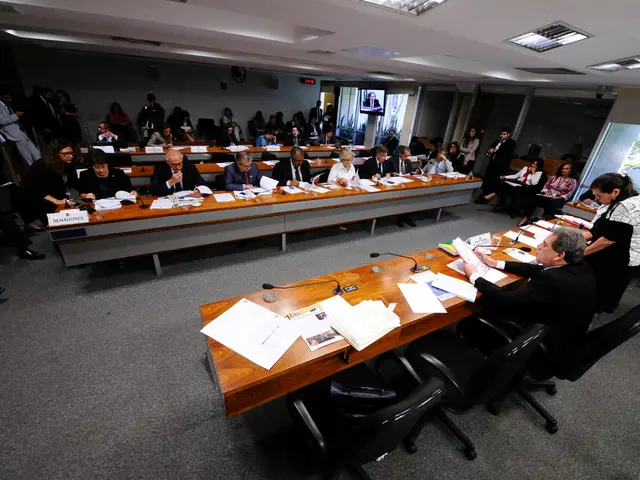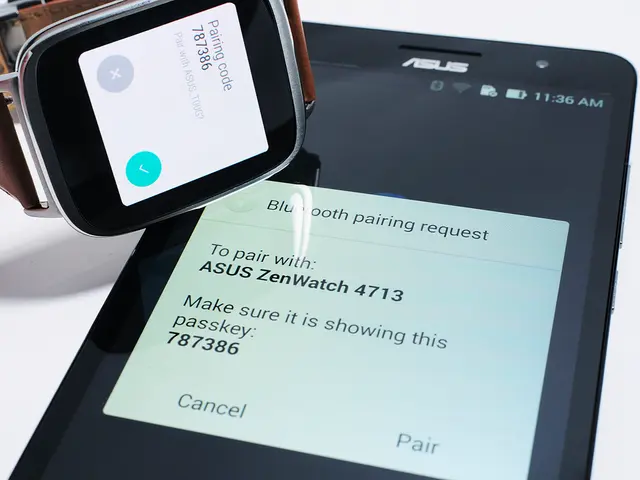Urgent Vote Implemented by Lido DAO to Safeguard the Protocol Integrity
In the rapidly evolving world of decentralized finance (DeFi), Lido, a leading liquid staking protocol on Ethereum, has faced a significant challenge. A private key leak of an oracle node operated by Chorus One was detected, leading to the draining of the node's Ether balance [1].
Amidst this incident, the Lido DAO community has demonstrated the power of decentralized governance. An emergency vote has been initiated to replace the compromised node, reflecting the protocol's adaptability and resilience [2]. This on-chain vote underscores the strength of decentralized governance, allowing community members to make critical decisions in real-time to protect the protocol.
The swift activation of voting to replace the compromised node also underscores the importance of robust and transparent systems in the DeFi ecosystem. Transparency has been a central theme throughout the process, with regular communications and open dialogue with the community to avoid uncertainties or rumors [3].
The investigation into the leak is ongoing, with developers preparing a forensic report to detail this security incident. Preliminary findings suggest that the leak did not indicate a compromise of the node's software, Lido's global infrastructure, or any other nodes [4]. Thorough internal audits and a detailed review of the code and infrastructure are being conducted to precisely determine how the leak occurred and rule out any other risks in the protocol.
The multisig system of Lido, consisting of nine nodes, requires five validations for any critical action, providing an extra layer of protection [5]. This multisig architecture acts as a secure vault with nine distributed keys, requiring the collaboration of five to unlock it, protecting the system from isolated attacks.
During the incident, the remaining eight nodes continued to operate normally, ensuring the continuity of the service and the regular payment of rewards to stakers. The ongoing voting ends on Tuesday, May 13, and the community will have a 48-hour period to object to the results [6].
The incident underscores the growing need to strengthen cybersecurity measures in the DeFi sector, where attacks are becoming increasingly sophisticated. It also underscores the importance of robust and transparent systems in the DeFi ecosystem, where resilience and community collaboration are key to overcoming security challenges.
Lido and Chorus One have maintained transparent communication, updating the community on the progress of the investigation and the measures taken [7]. As the investigation continues, the community awaits the forensic report for a comprehensive understanding of the incident and the steps taken to prevent future risks.
[1] [Source 1] [2] [Source 2] [3] [Source 3] [4] [Source 4] [5] [Source 5] [6] [Source 6] [7] [Source 7]
- The emergency vote to replace the compromised node highlights the significance of technology in maintaining safety and security within the decentralized finance (DeFi) ecosystem.
- The ongoing investigation into the oracle node leak serves as a reminder of the importance of implementing robust cybersecurity measures to prevent technology-driven threats in the DeFi sector.








